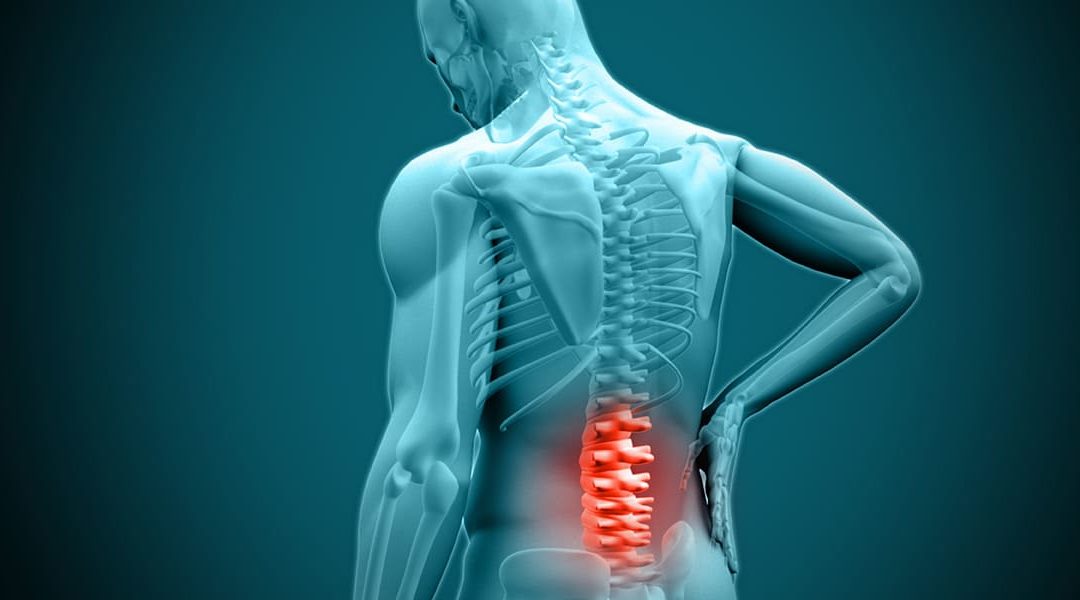Herniated Disc is one of the most common causes of back pain! Do you know where you back pain is coming from?
The bones (vertebrae) that form the spine in the back are cushioned by discs. These discs are round, like small pillows, with a tough, outer layer (annulus) that surrounds the nucleus. Located between each of the vertebra in the spinal column, discs act as shock absorbers for the spinal bones.
A herniated disc (also called bulged, slipped or ruptured) is a fragment of the disc nucleus that is pushed out of the annulus, into the spinal canal through a tear or rupture in the annulus. Discs that become herniated usually are in an early stage of degeneration. The spinal canal has limited space, which is inadequate for the spinal nerve and the displaced herniated disc fragment. Due to this displacement, the disc presses on spinal nerves, often producing pain, which may be severe.
Herniated discs can occur in any part of the spine. Herniated discs are more common in the lower back (lumbar spine), but also occur in the neck (cervical spine). The area in which pain is experienced depends on what part of the spine is affected. Physical therapy treatment at with us can help manage chronic pain due to herniated discs. Contact us today to know more.
Common Causes – A single excessive strain or injury may cause a herniated disc. However, disc material degenerates naturally as one ages, and the ligaments that hold it in place begin to weaken. As this degeneration progresses, a relatively minor strain or twisting movement can cause a disc to rupture.
Certain individuals may be more vulnerable to disc problems and, as a result, may suffer herniated discs in several places along the spine. Research has shown that a predisposition for herniated discs may exist in families with several members affected.
CAN DISC INJURY OR DISEASE BE PREVENTED?
Here are some important ways to avoid / minimize injury to the spinal discs:
- Use proper body mechanics when lifting, pushing, pulling, or performing any action that puts extra stress on your spine.
- Maintaining a healthy weight reduces the stress on your spine.
- Our expert physical therapy staff can help you analyze your job related movement and stresses on your spine. Please discuss the physical movements you endure at work and home with our spine specialists.
- Keeping your spinal muscles strong and flexible can be a big help in reducing stress on your discs.
- Maintaining close to normal alignment and posture of your spine helps reduce stress on your discs.
PHYSICAL THERAPY FOR HERNIATED DISCS
When experiencing back pain, it can be tempting to simply visit your general physician in search of a quick solution. However, in many cases, all that a general physician can offer in the way of pain relief is a prescription for painkillers. Alternatively, an experienced physical therapist can offer a variety of treatment options that are designed to target the ROOT CAUSE of your reoccurring back pain.
Some of the most common treatment options recommended by our physical therapist for herniated disc pain include:
- Ultrasound therapy or electrical muscle stimulation for fast pain relief and deep penetration of the targeted area
- Alternating treatment with ice and heat to reduce inflammation and soothe sore muscles.
- Therapeutic massage to help ease sore muscles
- Aerobic exercises like walking or using a stationary bicycle
- Stretching exercises that help to keep the muscles in the back flexible
WHAT KIND OF PHYSICAL THERAPIST DO I NEED TO TREAT HERNIATED DISCS?
All physical therapists are prepared through education and experience to treat people who have low back pain as a result of a herniated discs.
However, our expert clinicians go above and beyond the entry level training and have specialised manual therapy skills to address your herniated discs. In addition, our treatment approach includes treating you with a specialized exercise program made just for you to address your specific movement dysfunction. Lastly we have developed specialized treatment protocols such as LUMBAR SPINE REHABILITATION PROGRAM to help you with your herniated discs.
GET STARTED TODAY!
Through the use of targeted treatments and physical therapy exercises, our physical therapist can help you to manage your herniated disc pain and avoid the use of prescription medications or more invasive treatment options.
Schedule an appointment with us to get evaluated and be on the road to recovery and live a active and joyful life.



